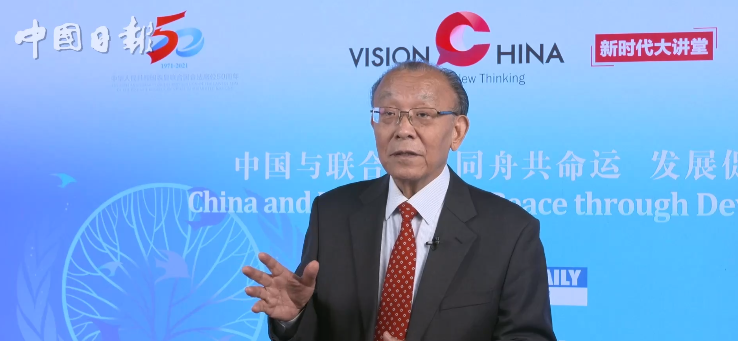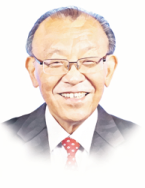Veteran hails 'three-phase' approach


Veteran Chinese diplomat Xu Shuyun has worked with the United Nations for decades, and his conversations with the organization's chiefs may best testify to the evolving relationship between one of the globe's most influential international groupings and its most-populous country.
"Former UN Secretary-General Mr (Kofi) Annan once said to me that 'China is the only country which feeds back to the UN system'," Xu, a member of the executive board of the United Nations Association of China, recalled during a speech that was broadcast at a Vision China event hosted by China Daily on Wednesday.
Annan made the comment in reference to the fact that China, upon the restoration of its lawful seat at the UN after dozens of years, had become a "net contributor" to all UN agencies and organizations, according to Xu.
Born in 1943, Xu, an economic and trade affairs expert, first served as a member of the Chinese diplomatic mission at the UN. In 1982, he became a member of the UN system as a member of staff and worked there for almost 25 years.
He said the China-UN interaction pattern has undergone three phases: the "one-way street"; the "two-way street"; and the current phase in which China serves as a leading contributor.
Shortly after the UN restored the People's Republic of China's lawful seat in 1971, the country quickly pledged contributions to the UN Development Programme.
"China was also a developing country. China, however, at that time did not accept UN assistance. I call this stage the 'one-way street'," Xu said.
The country signaled a change in its pattern of interaction with the UN by adopting the "two-way street" approach in 1979.
Vice-Premier Deng Xiaoping that year met with visiting UNDP administrator Bradford Morse. Deng told Morse that as a developing country, China would welcome economic and technical assistance from the UN development system, Xu recalled.
"I was soon assigned to draft the UNDP's first country program for China," he said.
"Many people who received training overseas arranged by the UN eventually became core technical or managerial staff in many research institutions and enterprises."
In retrospect, Xu said the restoration of the country's lawful seat to the UN "laid the foundation for China's reform and opening-up in the late 1970s". "China benefited a lot (from UN assistance) during the 1980s and 90s, which we Chinese people will never forget," he said.
As reform and opening-up accelerated, China's contribution to the UN has jumped to higher levels in recent decades.
Once, when speaking to Former Secretary-General Ban Ki Moon, Xu mentioned this third phase of China-UN interactions, labeling the country a "net contributor". Ban came up with another term to define the new stage.
"He said that we should name this third phase the 'broad way'," Xu recalled. To distinguish his proposal from the renowned musical district in New York, Ban explained in Chinese with a big smile that the "broad way" refers both to the pathway toward prosperity and the broad streets of Beijing.
In his speech, Xu highlighted China's South-South initiatives and programs under the UN framework, which aim to help developing countries and "are being implemented energetically".
"All these contribute to building a community with a shared future for mankind," he said.


































